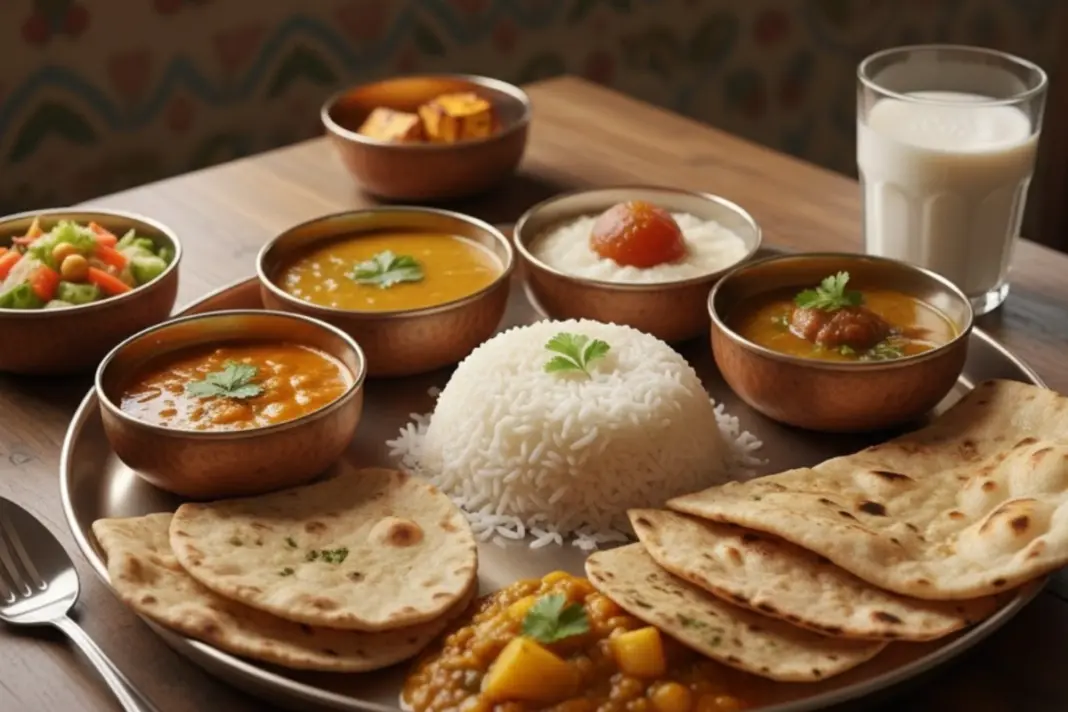ICMR Diet Study: A recent study led by the Indian Council of Medical Research (ICMR), along with the National Institute of Nutrition (NIN), Hyderabad, has revealed alarming trends in Indian diets. The research (published in Nature Medicine) highlights how India’s heavy reliance on refined carbohydrates and saturated fats is increasing the risk of metabolic disorders such as type 2 diabetes and obesity. The study used data from 18,090 adults participating in the ICMR–India Diabetes (INDIAB) survey, showing how dietary patterns are directly linked to health risks.
According to the findings, a typical Indian diet is high in low-quality carbs like white rice, milled grains and added sugars, while protein intake remains very low. Saturated fat consumption is also higher than recommended. People consuming the most carbohydrates were found to be 1.3 times more likely to develop type-2 diabetes, 1.2 times more likely to have prediabetes, and 1.2 times more likely to be obese than those eating fewer carbs.
DON'T MISS
ICMR Diet Study: Why Simply Switching Carbs Isn’t Enough
Interestingly, the study noted that swapping refined cereals with whole wheat or millet flour alone did not significantly reduce the risk of diabetes. Instead, replacing just 5% of calories from carbohydrates with 5% from protein (especially from plant sources like pulses, legumes or dairy) showed a notable reduction in the likelihood of newly diagnosed diabetes and prediabetes. Proteins from eggs or fish delivered similar benefits. On the other hand, replacing carbs with fats did not improve blood sugar levels, highlighting the importance of protein in a balanced diet.
In regions like Andhra Pradesh and Telangana, where polished rice is a staple, the study emphasises the need to diversify meals. Experts recommend increasing high-quality protein intake and reducing added sugar and saturated fats. Public health initiatives should focus on encouraging pulses, legumes, dairy, eggs and fish, while educating people about the dangers of over-reliance on refined rice and wheat.
Practical Tips To Improve Your Diet
Most simple Indian meals provide around 60% of calories from carbohydrates, only 12% from protein, and the rest from fats. Extra snacks, namkeen, and biscuits often add unnecessary calories, while dairy contributes just 2% of total calories and meat only 1%.
To improve your diet, start small. Balance rice meals with protein sources like eggs, chicken, paneer, or curd. Including three medium-sized pieces of paneer or eggs per meal can significantly boost protein intake. Supplements can help, but whole foods are always better.
Adding fiber and protein, such as eggs or chapati with lentils, can help you feel fuller and reduce overeating. You can start with small adjustments, increase protein in family meals and slowly swap processed carbs with healthier options. Over time, these simple changes can improve overall health, control hunger and reduce the risk of diabetes and obesity.



